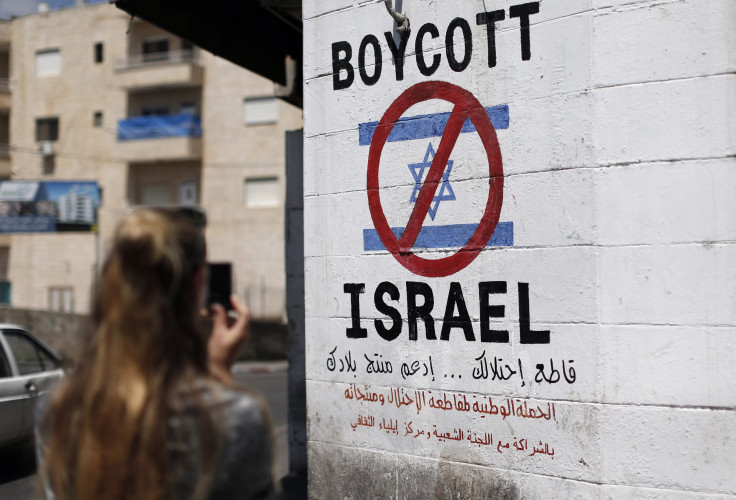US Church Votes To Divest From Companies With Ties To Israeli Settlements

The United Church of Christ -- one of the largest Protestant denominations in the United States -- on Tuesday voted overwhelmingly in favor of divesting from companies that profit from the Israeli occupation of Palestinian territories and boycotting goods produced in these territories.
Companies based in Israeli settlements in the West Bank produce goods ranging from textiles to household appliances to food and beverages. Over the last few years, several nations have supported the Boycott, Divestment and Sanctions (BDS) Movement, affecting products manufactured by these companies. And while the economic impact of the church's latest move is unlikely to be significant, it provides moral support to the international BDS movement.
“The United Church of Christ has identified Israel’s occupation of Palestinian land and the human rights abuses it has committed there to be a major source of conflict and has called for an end to settlement activity,” the church said, in a statement. “By approving this resolution with its clear, unequivocal call for specific actions toward ending the occupation of Palestinian territories, the United Church of Christ can offer a sign of hope to the Palestinians and add its weight to a world-wide movement toward a just peace in the region.”
The church has, in the past, accused Israel of indulging in widespread human rights abuses against Palestinians in the occupied territories. The move to divest from companies in these areas was first proposed in 2005.
The Israeli government was quick to criticize the move, terming the church’s policies as distorted and historically biased against the country.
The resolution “reflected the most radical politics for more than a decade and in no way reflect a moral stance or reality-based position,” Emmanuel Nahshon, spokesman for the Israeli foreign ministry, reportedly said. “People of faith ought to be acting to help Israel and the Palestinians to renew efforts to achieve peace, rather than endlessly demonizing one party in the conflict -- in our view, the aggrieved party.”
The BDS Movement -- launched in 2005 as an alternative to armed struggle against the Israeli occupation -- has faced vehement criticism by Israeli Prime Minister Benjamin Netanyahu, who once termed its supporters “anti-Semites in modern garb.”
“[BDS attempts] don't seek a solution of two states for two people ... but the dissolution of the only state of the Jewish people,” Netanyahu reportedly said, during a conference in the U.S. last year. “The boycotters should be boycotted.”
© Copyright IBTimes 2024. All rights reserved.












